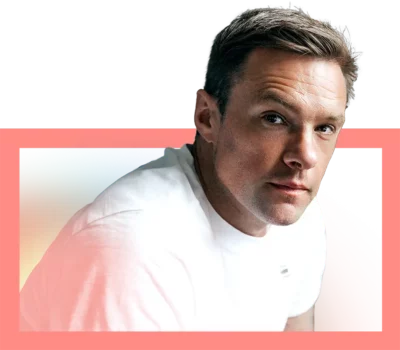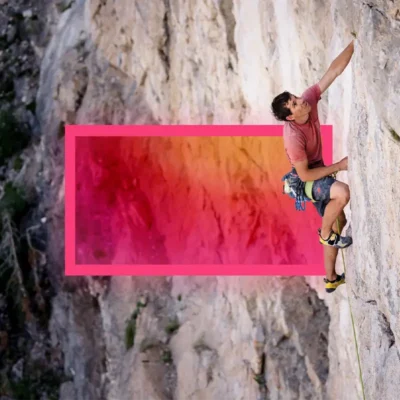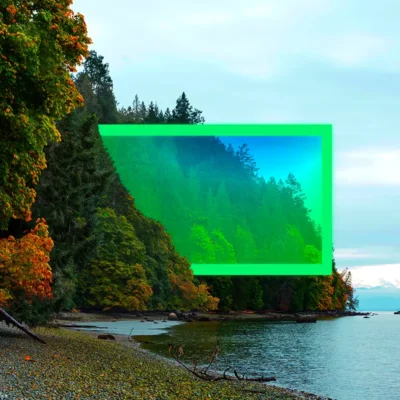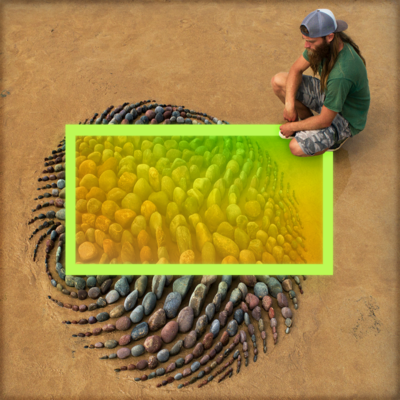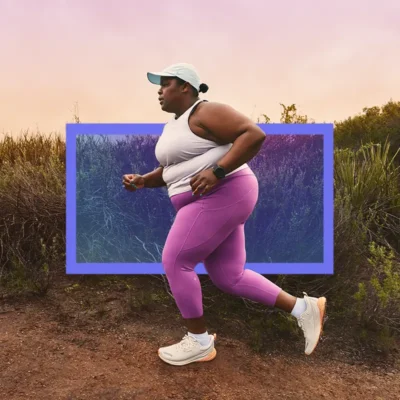Learning to heal by learning to feel
From the outside, Niall Breslin — known by legions of Irish fans as Bressie — appears to have led a charmed life. He’s had a professional Rugby career, achieved national stardom as a musician, and been a coach on The Voice of Ireland. But behind all those achievements lies Niall’s struggle with repressed emotions and generations of unresolved pain. In this week’s Meditative Story, Bressie shares how he learned to embrace the parts of himself he once buried. The parts that showed him how to heal and led him to become one of Ireland’s leading mental health advocates.
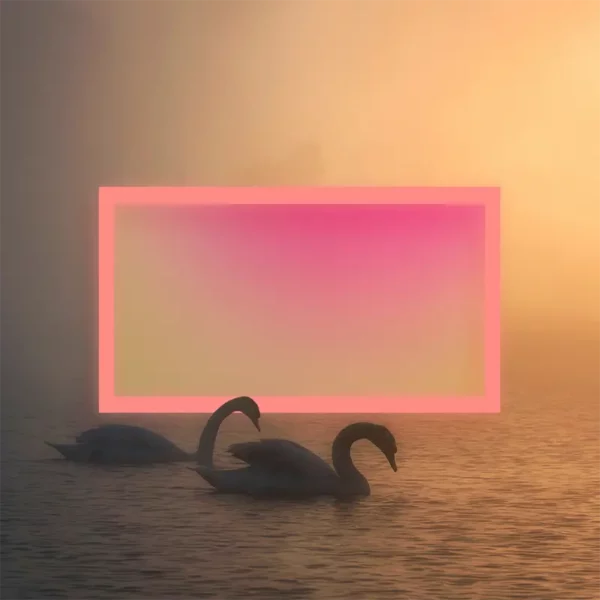
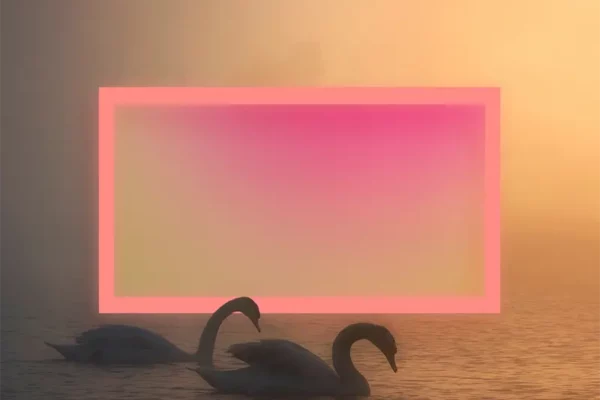
Table of Contents:
Transcript:
Learning to heal by learning to feel
NIALL BRESLIN: No matter where I am in Ireland, I feel a gravitational pull to where I’m from in the midlands. I think it’s because of the lakes like this one. These homes to rainbow trout, and swans, and mythical stories like The Children of Lir and Gulliver’s Travels. When I get rinsed by the world, which happens quite a lot, or feel particularly lost, this is where I return.
ROHAN GUNATILLAKE: Niall Breslin, known by legions of Irish fans as Bressie, is a musician, and mental health advocate in Ireland. In this week’s Meditative Story, Bressie shares how he learned to embrace the parts of himself he once buried. The parts that showed him how to heal.
We’d also like to let you know in advance that today’s episode includes a moment of violence, so please take care while listening.
In this series, we combine immersive first-person stories, breathtaking music, and mindfulness prompts so that we may see our lives reflected back to us in other people’s stories. And that can lead to improvements in our own inner lives.
From WaitWhat, this is Meditative Story. I’m Rohan, and I’ll be your guide.
The body relaxed. The body breathing. Your senses open. Your mind open. Meeting the world.
BRESLIN: It’s 5 in the morning. Mum taps on my bedroom door to wake me up, but I’m not asleep.
She pokes her head inside. In the dim light I can see she’s still wearing her dressing robe but she’s brushed her blonde hair around her face. “Come on downstairs love,” she says, “it’s time to say goodbye.”
I silently walk down the wooden stairs with my brother and three sisters, all in our socks and pajamas. The hallway at the bottom of the stairs, it’s small. It’s a bit awkward for all of us to squeeze in. I’m only 10 years old, but I’m already used to this routine.
Dad is waiting by the front door. He looks handsome and a little stiff in his khaki army uniform. The Irish Tri-Color on one shoulder and The United Nations Interim Force badge on the other, plus the stripes of his rank: Officer. He’s got a good crop of dark hair, cut short. His large duffel sits at his feet.
One bag doesn’t seem like enough for how long he’ll be gone. But it’s all he ever takes on these trips. This time, he’s off to Lebanon for a year.
Every time dad leaves, an awkward energy fills the house. None of us want him to go, but we know he has to go. The wait feels…brutal. And the build up makes me anxious and unsettles me. My two older sisters, Julia and Laura, retreat to the kitchen, but I stay in the hallway looking at my dad. I can see by his face that he’s dreading this too. He doesn’t want to leave his family. I’m trying to hold it together, but I’m fooling nobody.
That’s when mum leans over and whispers, “Don’t cry. It’ll upset your dad.” I don’t really understand. Why can’t I cry? I’m upset. We all are. But there’s a somewhat unspoken understanding that we don’t do that. I hold my breath until that feeling passes. Mum’s so strong, and I want to be strong for her.
Finally, we see the headlights through the glass by the front door. We stand in a line, oldest to youngest, and dad gives each of us a hug. I’m 4th. His warm, stocky arms wrap around me. It’s a long hug. Always a long hug. “Be good for your mother,” he says.
We step out into the freezing porch and are greeted by another man in uniform. Things are suddenly very formal. He and my dad salute each other, then he grabs my dad’s duffel and takes it to the truck. Dad lingers for a second and grumbles something about needing to use the toilet before he goes.
Selfishly I think, “Would you just go for God’s sake? Just leave so we can stop feeling like this and start counting the days till you come home.”
But when dad finally turns and walks towards the car, I can hardly bear it. Through the dark, I see his shoulders shake and hear a muted, heartbroken cry. He keeps walking and doesn’t turn back.
We all retreat to our bedrooms and pretend to go back to sleep. I lay on my back in my bed feeling…confused. In the next room, I hear my mum — this strong, stoic woman — sobbing. “God,” I think, “Why can’t we just feel things in front of each other?”
Even at this age, I understand. This is Ireland. We aren’t supposed to show sad emotions, only happy, joyful ones. We’re uncomfortable with other people’s pain, so we avoid feeling it ourselves. We don’t know how to deal with it. We bury it deep, deep down.
As the dawn light begins to creep through the window, I take whatever part of me is sad about my dad leaving and I try to push it down.
Our teacher paces the front of the room wearing a short sleeved collared shirt that’s too big for him and trousers that are way too small. His face is tense and covered in sweat. His fingers and clothes have a slightly yellow color from smoking. The boy standing next to him holding his arm out stares straight ahead at the back of the classroom.
All the primary school classrooms look the same. Twenty wooden desks facing the front. It’s all windows on one side, and the sunshine beating through the glass today makes it really hot. This big, old stone school for boys is run by the Congregation of Christian Brothers.
The teacher stops his pacing and once again raises the leather strap above his head, striking it down viciously on the hand of the stone-faced boy standing by his desk. We all wince. My stomach turns over. This 9-year-old boy is the toughest kid. He’s what we call a traveler here in Ireland — part of a minority ethnic group. He’s always getting picked on by the teachers. An easy target for their abuse. He just stands there. Taking it.
I’m hardly breathing. We’ve all been in this boy’s position. There are kids that have gotten much, much worse. Some of the teachers at this school are monsters. I never know if I’ll be next.
Eventually, the teacher tires out and drops the leather strap on his desk. He must have hit him 30 times. I’ll never forget the noise of it. The dark thud hitting his swollen hand.
The boy doesn’t come back the next day. And when he eventually returns, he walks around with his inflamed hand pressed against his metal pencil case to keep it cool. The teacher acts as if nothing happened. It’s how everyone acts. In the school. In my hometown of Mullingar. In all of Ireland. Everyone knows this happens, and everyone lets it happen. No one talks. They avoid, avoid, avoid. A baton of silence has been passed from grandfather to father, long before I was born. It’s a dark history of untold stories and buried shame.
This is the year my headaches start. I constantly feel that something bad is about to happen to me, or I’m going to be made to watch it happen to someone else. I never let myself relax. Never let myself soften. Never let myself feel the pain or fear I’m experiencing. At this point, I’m just trying to survive.
GUNATILLAKE: Our own body may also have tensed up following that difficult moment, mine certainly has. So let’s soften ourselves, letting go the hands, or face or wherever you can feel any holding. Softening and relaxing tension wherever we can. And giving ourselves permission to feel all our feelings.
BRESLIN: Finally, mum’s lessons are over. When I hear the last student leave, I race downstairs to the good room. That’s what we call it, the good room. It’s really too small for the baby grand piano, but we put it in there anyway. My mother is a piano teacher, but really I’m the one who’s obsessed with music. I feel safe behind the piano. It’s like a sanctuary to me.
I slide onto the polished wood bench, still warm from the kid who just sat there. It’s pitch dark outside, an Irish winter. I ignore the sheet music on the stand. I know how to read notes, but that’s not how I play.
I deconstruct songs I like. In our home, I take in an eclectic mix of music escaping from my siblings’ bedrooms….from Abba, The Cure, The Sex Pistols…punk, goth, and metal with my mother’s penchant for classical and my dad’s love of traditional music. I take songs apart, put them back together, learn them from the inside out. Today, I’m working on a classic Scott Joplin piano tune, the Entertainer. It feels like all my fingers are moving at once. I mess up. I start again. And again. It’s that melody … TA DA DA TA DA DA DA …. TA DA DA TA DA DA DA…
At 15 years old, my life looks good on the outside. I do fine in school. I’m captain of the school football team. I love my family. But I can’t sleep at night. I lay in bed and feel like I’m choking, like I can’t breathe. I tear my bedcover apart. My stomach always hurts. It feels like my skin is always crawling. The doctor says it’s just puberty. I don’t believe that.
At the piano, none of that matters. I’m just trying to figure out the left-hand chords. Adding in sustain pedal. Getting lost in the music. Hours and hours go by.
When I play music, I play by feeling. It’s intuitive. It’s the opposite of that hyper-vigilance, that fear that consumes my mind. Like I’m tapping into some place deep inside me that’s untouched. A place that I otherwise close myself off to. A place where I’m confident, creative, and strong. Where I can do more than just survive. Where I can feel.
I sit down on the end of the pier, on the far reach of the lake. The wood is a bit creaky and worn down from years of sun and rain and battering Irish weather. It’s near sunset, so the air has a bit of a chill to it. It feels crisp and smells of silty earth. This lake — Lough Ennell — has a peculiar energy to it that’s hard to describe. I absorb it. I take every bit of it in. I’m in my mid-30s now, and this is a night I really need that special energy.
My legs swing just above the water. I look over at the few empty boats pulled up to the shore. The gentle breeze blowing through the tall grass rising out of the shallows. It’s the height of summer and I’m surprised the midges aren’t out. Cause usually you get absolutely eaten alive in the evening. I hear the occasional plop of a fish. Miles off in the distance, farmers harvest their crops, but that’s it. Nobody’s around.
No matter where I am in Ireland, I feel a gravitational pull to where I’m from in the midlands. I think it’s because of the lakes like this one. In spite of everything I went through in my hometown just a few kilometers up the road — the stress, the abuse, the depression — I always come back to these calm and serene bodies of water. These homes to rainbow trout, and swans, and mythical stories like The Children of Lir and Gulliver’s Travels. When I get rinsed by the world, which happens quite a lot, or feel particularly lost, this is where I return.
That anxiety I experience as a teenager goes on for years, and it gets worse. I start having panic attacks. They get so bad that I end up dropping out of college and I’m forced to quit a professional rugby career that I loved. I just couldn’t do it anymore. But my music takes off. I mean like, really takes off. And I end up being on one of the biggest TV shows in the country. But 10 minutes before a live taping, I find myself on the floor of my dressing room. Scrape marks on my neck from trying to catch my breath. Vomit on my shirt. Another panic attack. Still, I pretend I’m okay. I walk out onto this live TV show and I just do my job. That familiar routine.
I push everything down. Do what I’ve been shown to do — emotionally disconnect from the world. In my head, it’s easier to feel nothing than to feel everything.
GUNATILLAKE: When it comes to our emotional life, we’ve all been trained in some way, often over generations. How well do you understand how you relate to your emotions? And reflecting on that in this moment, are you okay with that, or is there space for change?
BRESLIN: Sitting on the pier, I take a deep breath and look softly out at the lake. It’s about six kilometers to the far end. It’s hard to distinguish between the water and the sky. Married in blue. Utterly undisturbed. And I know every single part of this lake. The deep parts, the shallow parts. It’s just a beautiful part of the world. I always try to keep it in my mind.
Irish people, we have a long history of meditating through the land. Everyone from the pagans to the high kings of Ireland. The land here is utterly hypnotic. As I continue to stare off, my body becomes less tense. I’m enveloped in the beautiful ambient hum of nature. It’s utterly relaxing. The solitude and peace of it all. My focus continues to soften. I watch the gentle movement of the water on the lake’s surface. Constantly changing. And then I see something far across the lake. It’s just a flash of color at first. A boat? No. A figure. A person. It looks as though it’s heading towards me.
I can’t make out who it is, but I keep watching. Curious. Letting the image wash over me. I have this sense of comfort and assurance and it feels warm. The figure keeps coming towards me, walking along the water’s surface, and I feel like I’m moving to meet it. Inviting it to merge with me, as funny and weird as that sounds.
It’s only then I realize the figure is…me. Or, a part of me. In my head I think, that’s the person that’s got me through all this, those years at school, those long nights, those panic attacks. That’s the person who’s strong, untouched, and compassionate. Who’s vulnerable and feels everything. That’s the person within me.
There’s a quote from an Irish poet and philosopher named John O’Donohue that my partner Louize once told me. And I’ve never forgotten it. The quote goes: “There is a place in you where you have never been wounded.” When I first heard it, it floored me — the possibility that there was a place in me where I’ve never been wounded. And now, for the first time, I see it as true.
I’m filled with a deep sense of curiosity and euphoria. I want to know that person across the lake, that part of me that isn’t afraid to feel. That part of me that I’ve pushed down for so long. I want to hear what he has to say.
It’s quarter past seven now. The sun is setting. I know I should go. I just feel so at ease, so happy.
When I get back in my car, I for some reason have a desire to play a Green Day album, Dookie, which is an old pop-punk album. It’s strange, but I go with it. I listened to that album all the time when I was a kid in the nineties. It’s such a banging record. So I just blast up the speakers loud. And I’m back to being 13 year old me. It was a painful time, but there was also a kind of pure rawness to life. A kind of a rawness I’ve had a hard time feeling since.
Driving along the motorway back to Dublin, I feel a grief that I wasn’t just able to fully be a kid. I feel the loss of those years I spent repressing all my negative feelings, holding everything inside. It’s what I felt I had to do to survive. It’s what everything around me indicated I was meant to do.
As the guitars and cymbals blare out of my speakers and into my body, I’m not repressing anything any more. Through the melodic power punk of my youth, I’m letting myself feel it all. That grief, that sadness, and pain. But also the joy, the relief, and the pride I feel at having made it through it all.
Like I used to do at the piano, I’m feeling it through the music now. Feeling that part of myself that I met down at the lake.
I realize now by closing myself off to negative emotions and not allowing myself to feel them, I’m not just doing physical and mental damage to myself. I’m cutting myself off from the positive as well. From this wellspring of healing and strength that existed somewhere inside me all along.
My nephew, Billy, is 10. Right now, he’s out in the car and he is really upset. My sister Laura, like every parent in the pandemic, is finding this tough. She’s with him everyday, all the time, because of the pandemic. They can’t come into the house because my parents are there, and I’m cocooning my parents and quarantining them.
I can see my sister is upset and exhausted. I go outside and I stand by his side of the car. Billy’s a big bolshy strong kid but he’s also the kind of kid who’ll come up and he’ll hug you out of nowhere. He’ll hug you and he’ll mean it. And it’s the best bloody hug you will ever get.
“Billy,” I say, “What’s up? Why you so upset?” He’s sniffing and red-faced, but he’s ready to talk to me. He always is ready to talk to me.
And he just screams, “I want to move to Australia!” he says. I’m like, what are you talking about? I have no idea what he means. Then I realize, Australia isn’t in lockdown and he obviously saw that on the news.
He goes, “I just want to hug my nan.”
“Yeah,” I say. “That must be really hard, Billy. I know you love Nana and it’s okay you’re upset.” And I just sit with him until he cries it out. I want him to just be a kid. I want him to feel it all. And I’ll be here with him. And I want him to know I always will be.
When I go up to my sister, she looks exhausted. “Listen,” I say. “That’s exactly how you want him to be. It’s wonderful. He’s emotional. He’s communicating. Remember,” I say, “we weren’t allowed to be that way as kids.”
She looks at me. “Yeah,” she says, “you’re right.”
The generations before us passed us the batons of not feeling, not expressing. I’m not passing it on anymore. I’m giving my nephew full clarity to be the good, the bad, and the ugly mess that comes with being a child and a human being. I want him to know, sometimes you don’t need to be resilient. You don’t need to be strong. You don’t need to pretend it’s okay.
I don’t want him growing up in the same country of silent pain I did. I don’t want any kid to.
Feeling isn’t always positive. It isn’t always pretty. When you’ve repressed your emotions for so many years and then finally let them out, it can be overwhelming. But in order to heal the wounds that we’ve suffered — either from ourselves or at the hands of others — we have to learn to feel whatever it is we’re feeling. The good and the bad. There’s a pride that comes along with that. In knowing that, alongside those feelings, there is a place inside you that survived. That was soft and compassionate and untouched. A place that has never been wounded. Like the deep waters beneath the ever-changing surface of a lake. The same essential self remains, teeming with life.
Rohan’s closing meditation
GUNATILLAKE: Thank you, Niall.
I think Bressie and I are pretty much the same age. I also remember that Green Day album so well. My sister had put a mixtape together for me on one side of a cassette and on the other was that album. I vividly remember the freedom and energy I had listening to it as a young teenager, the songs speaking to things I was feeling but didn’t have the emotional literacy to express myself.
And I also recognize what it’s like to be brought up in a culture and a family where suppression tends to win over expression, and so for our closing meditation, I’m going to take us through a four part process which I’ve found useful in my own life to unlearn some of those inner behaviors.
Because whether trained or by our own intuition, when repressing our emotions, in the moment, it can serve a really useful purpose because it means we don’t have to feel some of the difficult stuff. But the cost is that we disconnect from parts of ourselves that if opened up to, would allow us to heal and move forward.
So, to our practice together. This is one you can do now, but also one you might want to come back to or try by yourself. And we start with settling down.
Sometimes emotions can be loud and obvious. Sometimes, and for many of us more often, they are quiet, crowded out by the busy to-do list that is our day. And so our mind can need to be a bit quieter than it typically is to be sensitive to our emotional life. Having a quiet mind also allows us to tune into more subtle emotions.
Recognizing that we start by settling down.
Softening the body. Softening your signature areas of holding if you know them.
Allowing the body to be comfortable.
Scanning the body for any tension that is here, residue from what has come before.
To further settle ourselves we can also do what Niall did. For him, it was picturing the beautiful, absorbing Lough Ennell, its water, its sky. So, if there is a landscape or a place in nature that makes you feel happy, content, calm, when you think of it, then I invite you to think of it now. Be there now.
It can be a bit of a meditation cliche to visualize ourselves in a beautiful place, but I think it’s a cliche because it can really work.
So whether it’s that or something else, do what you need to do to settle down and settle in. I trust you.
Being settled is important when looking to tune into our emotions, but so too is safety.
There is nothing I can necessarily do to make you feel safe in this moment, but what I can do is help point out what is here.
So if you are in a space and a setting where you do feel safe, where you are safe, know that, and allow that knowledge to drop your shoulders further, drop you further into softness and openness.
Now that we’re settled and open, we’ll move to do the practice of noting or naming, one I’ve shared a few times before since it has so many benefits.
The version we’ll do today is to notice what is happening in our mind, our emotions, our mood, our feelings.
Notice what’s happening and name it, out loud if you like, or just softly to yourself.
Turning inside, and in as real time as possible, sensing into our emotions and naming them as they appear. Making a note every few seconds or so.
Let me do a little demo.
Calm.
Planning.
Calm.
Worried.
Just like that, noticing what’s happening in our emotional life….giving it a name, and naming it, out loud or internally to yourself. And if you’re not sure or if you notice a sense of blankness, that’s what you note: “Not Sure…. Blankness,” because that is what is happening.
Because that is the idea, naming what is happening in our emotions while they are happening.
Mindfulness of emotions in one of its purest forms.
If you’re not used to this technique of naming or noting it can feel a bit strange to do.
That’s okay.
If you notice there is some judgment arising, either of me or of you, or the technique. If you notice any urge to move away from the meditation, that’s totally okay. Just include that in what you note.
Judgment.
Cynicism.
Resistance.
Whatever is here, here in the heart, in the emotions, know it and note it. Quietly to yourself or if you’re feeling brave out loud.
So, we’re coming to the end of our little practice together and we’ll close out in the heart.
Dropping our attention, as much as we can into the region of the heart, the sensations in and around the chest.
Including these physical sensations in how we explore our emotional literacy.
Because emotions are also felt experiences.
So that’s us.
We settled.
We settled into a feeling of safety and protection.
We named our emotional experience.
We sensed into the physical sensations of the heart.
I hope you got a little sense of how valuable this practice can be. Build it over time and our sensitivity to our emotional life can really grow and even better, it can feel normal to know what’s really going on inside us.
So when things do get a bit scary and a bit challenging, we have the tools and most importantly the confidence to face things and not always have to run away.
Thank you Bressie for reminding me of that.
And thank you. Be well.
We’d love to hear your personal reflections from Niall’s episode. How did you relate to his story? You can find us on all your social media platforms through our handle @MeditativeStory. Or you can email us at: [email protected].

